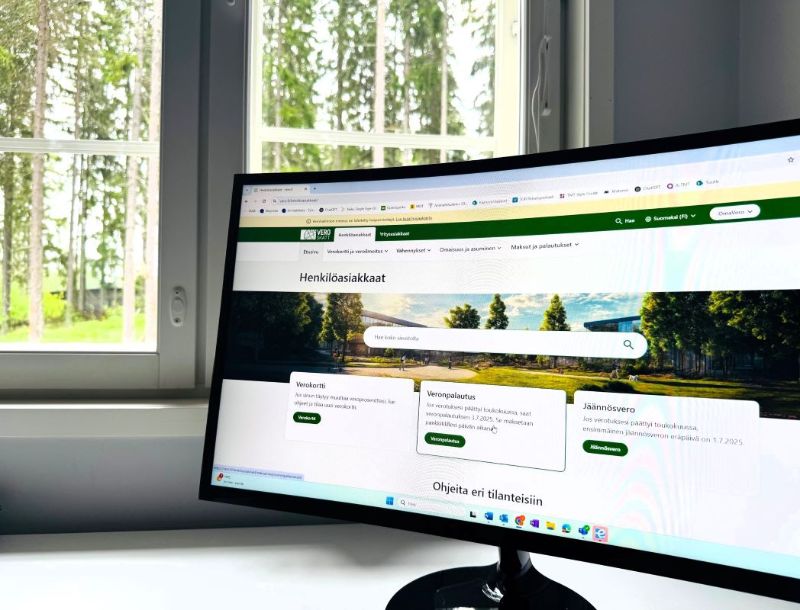Account manager
"As an account manager, you can influence the way in which an organisation develops its online services and how it is implemented in accordance with customer needs."

- Sari Lahti
- I work as an account manager in the Finnish Tax Administration.
- I hold a Master of Science in Economics and Business Administration from the University of Vaasa.
- I have 20 years’ work experience in the field.
Briefly explain what you do for a living.
I work on customer-oriented development to make it easier for individuals to deal with their tax matters. In this development work, I map out challenges facing customers in their tax matters, analyse customers’ service needs and customer feedback, and consider customer guidance methods and other solutions to ease the challenges. I work in close cooperation with analysts, communicators, technical developers, tax experts and other account managers.
My work also includes enhancing our organisation’s customer insight. I use the information available in the Finnish Tax Administration, conduct customer surveys and interviews, examine statistical data from different sources and cooperate with other authorities. I also participate in projects and development initiatives relating to individuals’ tax matters.
How have you ended up in the profession of your choice?
I have always been interested in developing and studying matters. I used to work as a sales manager in a publishing company. My work included a variety of different tasks in media sales and digital marketing. From there, I moved to the Finnish Tax Administration to work on development tasks.
Describe your typical working day or week.
My working day may start at a support clinic where we practise the use of artificial intelligence as work support. After that, I will take a look at the new development ideas that will be discussed in the brainstorming session at the end of the week. I comment in advance on suggestions concerning my own work tasks. Before lunch, I will meet a colleague to discuss a joint customer case.
I have additional meetings in the afternoon. For example, our team may meet to assess the impacts of the legislative change that will enter into force next year on customer demand and customer behaviour. I complete the day’s work by reviewing the feedback from the working group participating in the customer insight study and prepare a summary for the account director.
What kind of work environment and working hours do you have?
I mainly work on a remote basis. On most days, I work from eight to four.
What kind of competence or qualities are required in the profession?
The account manager must be able to handle large projects and initiatives. You must also be goal-oriented as both personal and team-wide targets have been set for the work. The work requires a genuine willingness to develop services and empathy to understand customers’ everyday concerns and different life situations.
What is the best thing about your profession?
The fact that the work is so varied is the best part of my job. It is also rewarding to see that our work really makes customers’ everyday lives easier. Before the customer sees a development idea as a practical application, for example as more customer-friendly online service, we have done a lot of work, such as brainstorming, technical development, testing and communication.
What are the downsides of the profession or what seems challenging?
It would be nice to see colleagues more often. My team members work in different parts of Finland, and we only meet face to face a couple of times a year.
What would you tell a person considering the profession of an account manager?
If you want to do meaningful work, I can recommend working in central government. As an account manager, you can influence the way in which an organisation develops its online services and how it is implemented in accordance with customer needs.
How do you see the future of your profession?
The public sector is facing pressures to cut spending. Artificial intelligence has also become part of our daily routines. Job descriptions and task contents may change but humans are still needed to solve complex and challenging tax issues. Customer-oriented development will also be needed in the future so that we know the changing needs of our customers and can offer them the right solutions.
